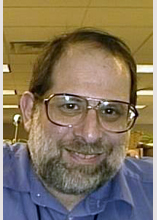|
By Bruce S. Ticker
 PHILADELPHIA—The upshot of the Mojave cross dispute is simple: The federal government discriminated against a minority religion. PHILADELPHIA—The upshot of the Mojave cross dispute is simple: The federal government discriminated against a minority religion.
The government went to unusual lengths to retain a cross on public land after rejecting an application for a Buddhist shrine. A decade ago, the National Park Service turned down an application for the shrine and decided to remove the cross from a rocky outcropping at the 1.6 million acre Mojave National Preserve in southern California.
Congress intervened. It declared the site a national monument, forbade the NPS from spending funds to take down the cross and in 2003 voted to swap land with the Veterans of Foreign Wars so that the VFW would control the single acre of land surrounding the cross, which was erected by the VFW in 1934 to commemorate fallen soldiers.
The five relatively sane members of the U.S. Supreme Court will do well to consider this sequence of events before they cast their votes in the case of Buono v. Salazar in which the feds claim that switching the property to private ownership makes the existence of the cross thereconstitutional.
When the Court heard arguments on Wednesday, Oct. 7, Justice Antonin Scalia left little doubt how he will vote, and the other three simplistic justices hinted that they will side with him.
Many Jews like myself resent having to observe religious symbols on public property, but even some of us recognize that these situations can often become convoluted. I personally interpret the First Amendment to mean that no religious symbols are permitted on taxpayer-funded property, but it is obvious that adhering to strict legalities means we would have to remake Arlington Cemetery.
The cross was repeatedly characterized as being located in the middle of nowhere, so why should anyone care? It is not as if the 8-foot high cross stands in front of Independence Hall in Philadelphia or atop an abandoned fort on New York City's Governor's Island, both busy National Park Service sites. Mojave, which is 200 miles east of Los Angeles and 60 miles
southeast of Las Vegas, is low on my vacation priority list.
Actually, Mojave does brisk business, with 628,000 visitors in 2008,according to the NPS Web site. Many visitors probably spot the cross while traveling on a nearby road, which means they see it once and briefly at that.
The fact remains that our government discriminated against a minority religion. Attorney Peter J. Eliasberg, who represents the American Civil Liberties Union from its Los Angeles office, made
Go to the top of right column
| |
a good case for that during a televised news conference. Republican U.S. Rep. Jerry Lewis of Redlands in San Bernardino County, whose district covers Mojave, reported on his congressional Web site that he coordinated the legislative measuresat the behest of veterans groups.
This legal train wreck opened when then-preserve assistant superintendentFrank Buono proposed that the Buddhist shrine application be rejected and the cross removed, and NPS officials agreed to both. Congress subsequently blocked the NPS from spending any money to take away the cross, The Washington Post reported.
Buono, now retired, sued in 1999 and a federal district judge agreed that the cross violated constitutional standards; the ruling was upheld by the U.S. Court of Appeals for the 9 th Circuit.
Congress subsequently declared the spot a national memorial and launched a deal to swap land with the Veterans of Foreign Wars, leaving the VFW with an acre of land surrounding the cross. Buono returned to court with the American Civil Liberties Union, and the appeals court stated that the transaction "would leave a little donut hole of land with a cross in the midst of a vast federal preserve," according to the Post.
Buono is a practicing Catholic who keeps a cross in his home, but he opposes allowing a religious symbol on federal land.
Congress passed all these measures when Republicans were in control, yet Democrats neglected to overturn Lewis's legislation when they took over after the 2006 midterm elections. It is no stretch to guess that they feared getting tangled up in a church-state issue, as did President Obama by persisting in defending the legislation in court. Secretary of the Interior Kenneth Salazar, an Obama appointee and former Democratic senator from Colorado, is the "Salazar in â "Buono v. Salazar."
Long forgotten has been the applicant for the Buddhist shrine even though Congress jumped through hoops to accommodate advocates for a Christian symbol. That is discrimination.
Three justices bolstered the point, if inadvertently, that these steps constitute discrimination during legal arguments. Justice Samuel A. Alito Jr. questioned if the land swap was "a sensible interpretation" of previous rulings, so acknowledging Congress's far-reaching efforts to retain the cross.
Scalia patronized minority religions when he declared that the cross is the :common symbol of the resting place of the dead'; like most Jews, Eliasberg offered a different take as he reminded Scalia that "there is never a cross on a tombstone of a Jew."
Justice John Paul Stevens automatically recognized the lengths to which Congress went when he asked the Obama administration attorney, "Do you think anyone thought there is the remotest possibility they (VFW) would put up a different memorial?"
That means Congress indeed discriminated against a minority religion.
Buddhists in America are justified to claim they were, well,
double-crossed by their own government.
|

